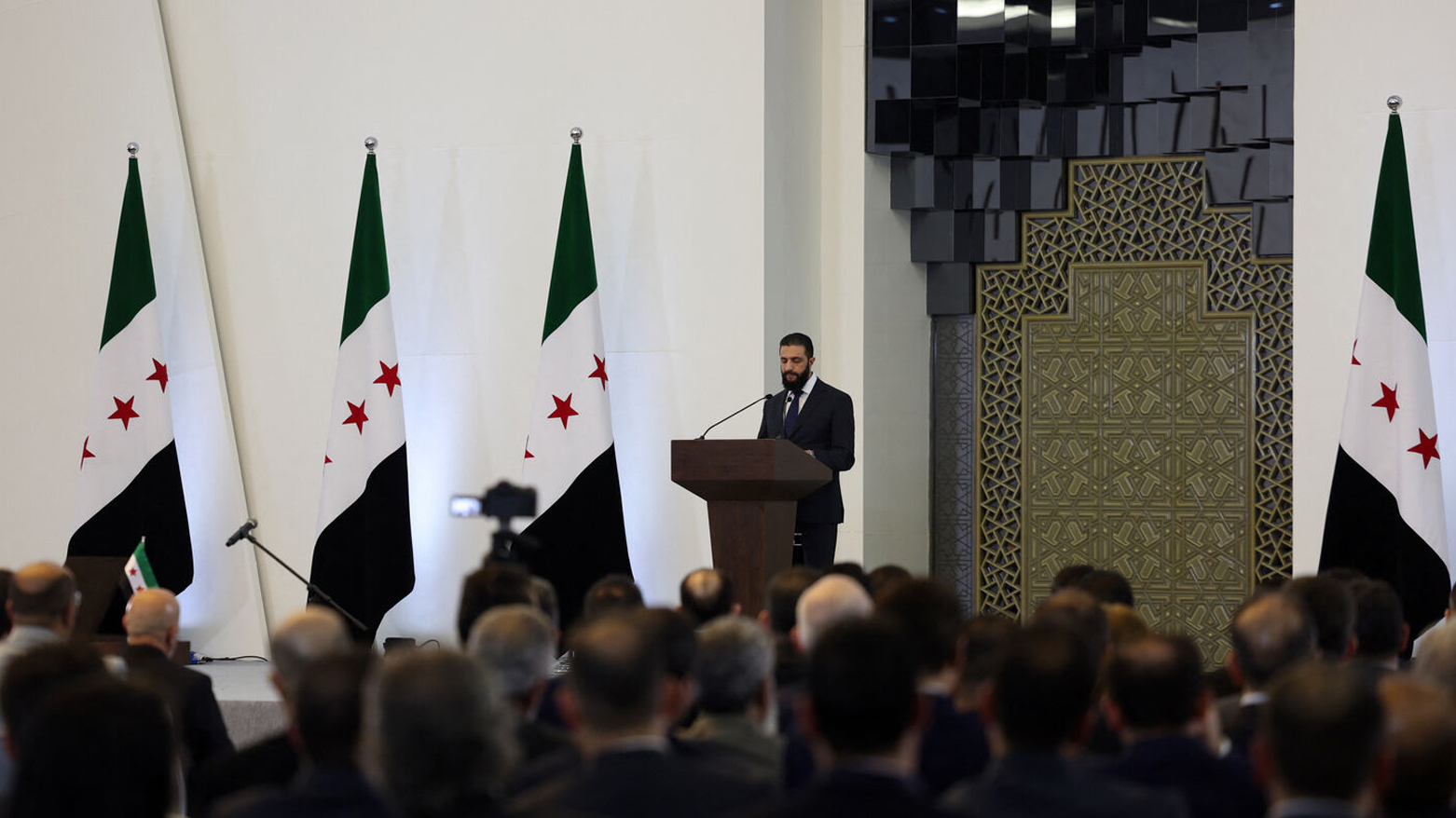Syria Responds to U.S. Conditions for Sanctions Relief, Seeks Mutual Understanding
Syria’s letter highlights actions taken on several fronts, including pledging cooperation with the global chemical weapons watchdog and establishing a liaison office to assist in the search for missing American journalist Austin Tice.

By Ahora Qadi
ERBIL (Kurdistan 24) – In an unprecedented diplomatic development, Syria has issued a written response to a list of U.S. conditions for partial sanctions relief, affirming that it has fulfilled most demands while stressing that several issues require "mutual understandings" with Washington, according to a letter reviewed exclusively by Reuters.
The four-page document, sent in mid-April, marks a significant step in the cautious diplomatic overtures between Damascus and Washington. It was delivered shortly before Syrian Foreign Minister Asaad al-Shibani's address to the United Nations Security Council, where he echoed many points raised in the letter.
Syria’s letter highlights actions taken on several fronts, including pledging cooperation with the global chemical weapons watchdog and establishing a liaison office to assist in the search for missing American journalist Austin Tice. However, it offered limited commitment regarding other critical issues such as the removal of foreign fighters and U.S. counterterrorism coordination.
Two Western officials and one Syrian official, all briefed on the contents, confirmed the authenticity of the letter.
Meeting U.S. Demands — With Conditions
Last month, U.S. envoy Natasha Franceschi handed Syria a list of eight demands during an in-person meeting on the sidelines of the Syria Donor Conference in Brussels. The conditions included the destruction of all remaining chemical weapons, the prevention of foreigners assuming senior government roles, and ensuring Syria does not become a safe haven for extremists.
The U.S. reportedly offered a two-year extension of a sanctions suspension — alongside the possibility of further exemptions — should Syria fully comply.
Syria’s response pledged partial fulfillment but emphasized that some demands necessitate broader consultations, particularly concerning foreign fighters and authorization for U.S. counterterrorism strikes inside Syrian territory.
A U.S. State Department spokesperson confirmed receipt of the Syrian letter, stating Washington is evaluating the response. However, the spokesperson reiterated that the U.S. does not recognize any entity as the legitimate government of Syria and emphasized that future normalization would depend entirely on the Syrian interim authorities' actions.
Foreign Fighters and Counterterrorism Cooperation
On the contentious issue of foreign fighters, the Syrian letter disclosed that Damascus had suspended the issuance of military ranks following controversy over the promotion of six foreign nationals — among them Uyghurs, a Jordanian, and a Turk — to senior military positions. However, it did not clarify whether the existing promotions had been rescinded or what further measures might be considered.
Regarding counterterrorism cooperation, Syria acknowledged ongoing communications with U.S. representatives in Amman, aiming to combat Islamic State remnants. Yet Damascus maintained that any operational coordination would require mutual understandings, implicitly resisting granting unilateral strike authority to U.S. forces on Syrian soil.
In a move that may ease regional concerns, Syria's letter pledged that it would not permit its territory to become a platform for threats against any state — explicitly including Israel. It also revealed the formation of a Syrian committee to monitor Palestinian militant activities and affirmed that armed groups outside state control would not be tolerated.
This development came just days before Syria detained two members of the Palestinian Islamic Jihad group, signaling a tougher stance on militant actors operating from Syrian territory.